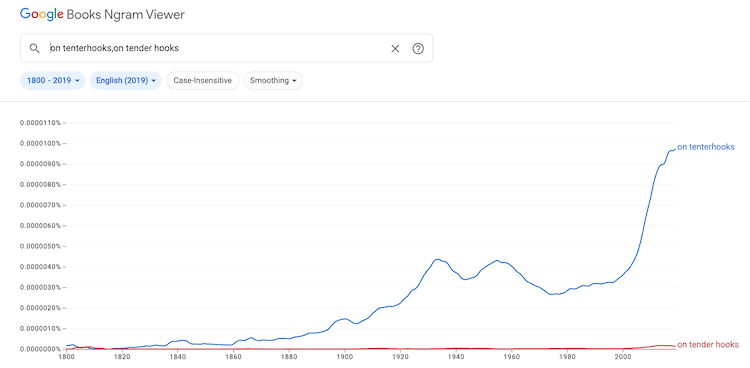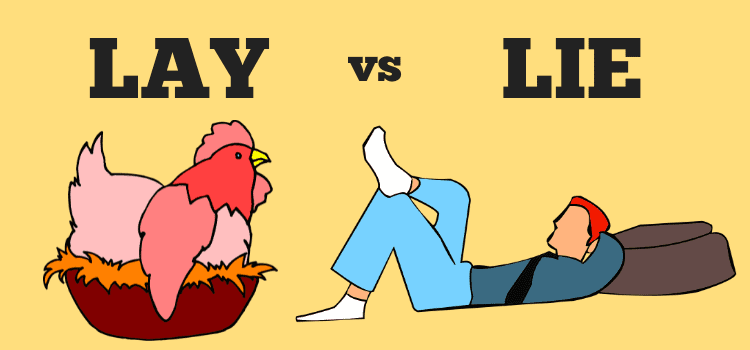
You’re waiting impatiently for news, but nothing arrives. Are you on tenterhooks or on tender hooks?
Yes, the suspense is agonizing and unbearable. Each passing moment seems like forever as you constantly check your phone, email, or glance at the clock.
But in the meantime, it might help to know that the correct answer is that you are on tenterhooks.
It’s hard to think of any type of hook that is tender. Just ask a fish.
Why do we say we are on tenterhooks?
The expression derives from drying or stretching cloth.
A tenter was a frame or framework for drying or applying other treatments to fabrics or materials during manufacture.
To ensure that the fabric was held taut, it was attached to a series of hooks or bent nails.

The image above is from the H. Barns & Sons – trade catalogue -1822.
Interestingly, a tenter hook was originally in two words. But most dictionaries now list only the one-word version.

In the image above from Wikimedia, you can see the series on tenterhooks at the top of a tenter.
You might think that another expression, hung out to dry, also derives from this.
But it didn’t come into use until the mid-twentieth century, referring to hanging washing on a line to dry, so it is unrelated.
How did on tenterhooks get its meaning?
It derives from the sense of something stretched tight to its limit, so it is rigid and taut.
From that sense, the meaning became a metaphor for feeling uneasy, nervous, stressed, or waiting in suspense.
Here are some quick examples.
I’ve been on tenterhooks waiting for my exam results.
A good mystery writer tries to keep their readers on tenterhooks.
The director didn’t seem to care about keeping his staff on tenterhooks regarding proposed redundancies.
I was sick of waiting on tenterhooks for the phone to ring for my test results, so I called my doctor.
You might think the expression is probably in less frequent use today than fifty or sixty years ago.
While it entered into popular use around the time of the First World War, it waned in the 80s and 90s.
However, it has had a second coming since around 2000 and is now in far more frequent use.

You might not use it very often. But if you do need to use it at any time, at least you know how to get it right now.
Just remember that hooks can never be tender.
More Reading: The use of the “no truck with” idiom
Always check common fixed expressions
When you are writing in a hurry, it’s easy to make mistakes.
Even if you are writing a short social media post, it pays to double-check before you publish.
Once you publish a writing error on the Internet, it’s there forever.
Yes, you are probably careful with your grammar and spelling, but checking your fixed expressions is also a good idea.
You might mention an article that peaked your interest. But the correct form is that it piqued your interest.
There are so many fixed expressions that are easy to get wrong due to homonyms and homophones.
For example, a damp squib or squid, bear or bare your soul, and straight-laced or strait-laced.
That’s why it’s so important to check.
Summary
I’m always fascinated with discovering the origins of idioms and expressions.
As soon as I have a doubt or don’t know, I’m keen to find out more and fill in the gaps in my knowledge.
We are so fortunate to have the Internet to be able to do so.
With it, we’re never left on tenterhooks looking for an answer to our questions.
Related reading: Death Throes Or Death Throws – Here’s How To Get It Right
Share This Article


